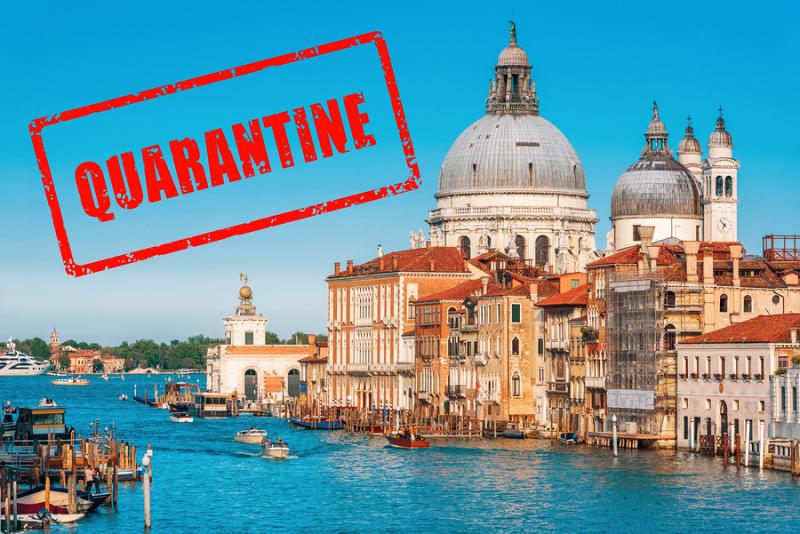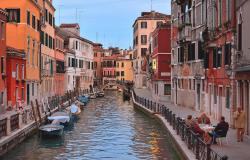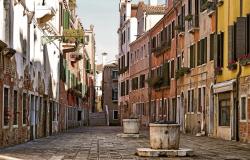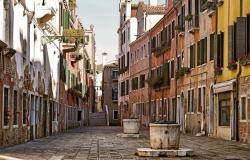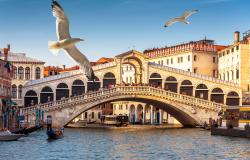You may not know it, but you have almost certain spoken Venetian over the past few months. Any discussion of the current world health crisis inevitably circles around to “quarantine”, which is derived from the Venetian term quarantena, or “forty days”. Quarantena was once used to refer to the 40-day period in which ships and their crew were required to anchor offshore when arriving in the Venetian lagoon in the middle ages as a way to prevent the spread of the plague and other exotic diseases to the Floating City. Today, of course, quarantine indicates any extended period of isolation for health reasons.
Of course, it’s not just COVID-19 that has us speaking Venetian. There are a number of common words used in conversation today that can be traced back to one of the most important maritime republics in the history of the Mediterranean. Here are a few you may recognize:
Ciao
Perhaps the most famous, this ubiquitous greeting that means both hello and goodbye was coined in Venice. A contraction of the word schiavo (slave), s’ciavo was a quick way to say “I am your slave” or “I am at your service”. Soon shortened to ciao, it evolved into a neutral expression of loyalty and trustworthiness; by the 20th century, it was the most common greeting in the Italian language and used across the globe.
Ballot
In the 16th century, the Republic of Venice was one of the most important commercial and political powers in the Mediterranean, and election of the governing Doge was of utmost importance. To ensure a fair and impartial election, electors were selected by choosing ballotte - golden and silver marbles - from a sealed box so no single Venetian family could hold sway over the process. Today, the anonymous ballot system is a direct descendant of the Venetian ballotte.
Ghetto
In 1516, the Jewish population of Venice was forced to move into a small quarter of the city where a historic foundry, or geto in Venetian, once stood. Many of the city’s Jews originated from central Europe, and pronounced the word with a hard “g”, gheto. From there, over the centuries ghetto was used first to indicate the Jewish quarters that were being created in cities across the continent and later for any depressed urban area.
Pants
Pantalone was one of the stock characters in Italy’s historic Commedia dell’Arte theater, a greedy merchant who wears a black cape and mask, scarlet jacket, purse of coins around his waist, and trousers. These trousers, which were called pantaloni after the character, became popular among Venetian peasants in the 16th century. The fashion soon spread to France, where they were called pantalon, and Britain, where they were known as pantaloon. Over the centuries, the word in English was shortened to pants, which means underpants in the UK and trousers in the US.
Gazette
While Venice was at war with the Ottoman Empire in the 16th century, the Republic began publishing short newspapers of just a few pages with news from the battlefields. These miniature newspapers were sold for two coins, called gaxeta - or gazzeta in standard Italian. Today, a short newspaper or magazine is known as a gazette, thanks to the Venetians!
